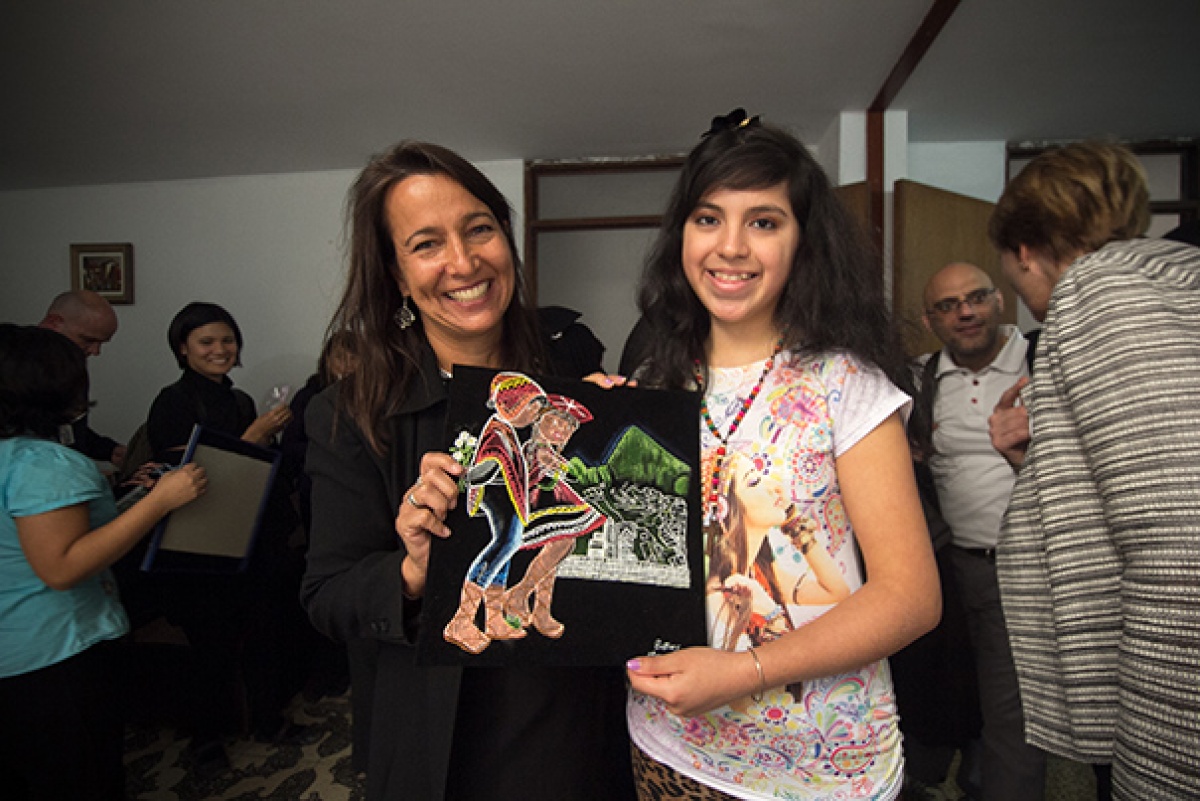Peru: More Safe Houses for People with Chronic Mental Illness
Posted on Dec 8, 2016

Partners In Health in Peru recently handed over control of its first safe house for women living with chronic mental illness to the Peruvian government, marking a major milestone in PIH's efforts to strengthen Peru's shift to a community-based mental health care system.
Peru's National Institute of Mental Health and the municipality of Carabayllo, where PIH is based, assumed responsibility of the home during a ceremony in September, just over a year after the home’s opening. Government officials hope to expand PIH’s model to 200 homes nationwide to support the roughly 1,400 people who desperately need the care and protection these safe houses provide.
PIH will advise the government during the expansion of this safe house, or hogar protegido, model. Meanwhile, staff members are visiting potential locations for the first Carabayllo-based safe house for men living with chronic mental illness.
“This needs to be replicated all over the country,” says Jerome Galea, deputy director of PIH in Peru, known locally as Socios En Salud.
Ministry of Health officials knew PIH’s long track record of providing mental health services to multidrug-resistant tuberculosis patients in Carabayllo. And so they approached PIH leaders and asked for help with a specific population of patients: men and women living with chronic mental illness who were medically stable but had nowhere to live, and so remained permanently institutionalized.
“Setting up the protected home was one of the first things the Ministry of Health asked about,” Galea says. “It came about with the perspective of strengthening the mental health delivery care system in Peru, which includes Carabayllo.”
The safe house is part of the ministry’s plan to completely overhaul mental health care. Less than two years ago, three Lima hospitals were the sole providers of mental health services, and they were heavily overburdened. The ministry committed to improving access to such care and turned for advice to the World Health Organization, which had published a guide in 2010 to help countries weave mental health care into the services already offered at neighborhood clinics.
In early 2015, the ministry began training Lima’s primary care physicians and nurses to identify mental disorders among patients visiting the capital’s 350 primary care clinics. That was the first step. The next will involve extending the same coverage to all of Peru’s 7,000 community clinics. Outpatient community health centers will also be established as specialized facilities for patients who need a higher level of care, but do not require hospitalization.
PIH staff accompany those suffering from acute and severe symptoms of mental illness to the community mental health clinic or the general hospital, depending on the severity of each case. If admitted to the hospital, patients will ideally return home or re-enter society by moving into a safe house like the one PIH piloted in Carabayllo.
So far, Carabayllo is the only community in all of Peru where this full suite of mental health services is available—from assessments in neighborhood clinics to this safe house for women.
One safe house resident, Valeria Ruiz,* 22, has settled in to her new environment. She has five roommates, a situation she seems to manage with good cheer. Community health workers teach her and other residents how to perform everyday tasks, such as making their beds, cleaning the bathroom, or buying groceries. They sometimes garden, go shopping, or take a walk in the park together.
Ruiz and another resident, Carla Torres,* are excelling. They started attending a nearby technical school three nights a week. They learn to make handicrafts and sweets, which they sell at PIH-sponsored events or to other technical school students.
Vanessa Montenegro, head of communications in Peru, says fellow students “don’t even realize” Ruiz and Torres have schizophrenia. For her part, Ruiz uses the profits to buy little things for her mother, who suffers from chronic mental illness herself and remains institutionalized in the same Lima hospital Ruiz left just over a year ago. It may be an unconventional reality, but it’s one Ruiz is adjusting to every day.
*Names have been changed.

